Life in Urban India is largely influenced by the following three classes of people -
Politicians/Powerful lobbies
Civic bodies and their contractors
General Public
There is enough blame on politicians, their myopic vision, and corruption, for the state of Urban India and rightly so. However, I’d like to focus a little bit more on the latter 2 classes because not enough has been said here.
I start this blog with my own version of Maslow’s Hierarchy - Let’s call it Maslow’s Hierarchy of Urban Planning and Civic Sense. This is something I’ve made up to describe how much people care about civic sense OR about how accountable various agencies in charge of civic work are.
There are 3 levels in this -
The lowest level is where people don’t give two hoots about civic sense or cleanliness or urban beauty and those sorts of elite terms. They are the ones who bear the brunt of the increasingly expensive cost of living in large cities and have to somehow grind for their daily bread. They don’t have really have the time or an inclination towards large societal goals and they don’t care about how people get affected by their behaviour (there are so many people anyway!)
This level also involves those civic bodies, contractors and labourers who get by doing the bare minimal work in terms of road repair or any other kind of civic work - they care far more about cutting costs or simply don’t have the money to do quality work because so much money gets hemorrhaged by corrupt officials.This is where a vast majority of urban India, especially in the larger cities, is at right now.
The middle level are those people who are not necessarily so financially/time strained and may care a little more about their surroundings and have some sense of pride in it’s well being. Civic bodies, contractors and so on care a little bit more about doing their job somewhat decently.
This applies to people and civic bodies in smaller Indian cities like Mysore, Indore, or Trivandrum.
The highest level is that of thinking aesthetically about urban planning and civic sense. People at this level at sticklers about cleanliness and civic sense and greenery and go out of their way to ensure that they don’t affect people around them in any adverse manner - most people here are secure financially.
The people and the civic bodies in Singapore, Tokyo, or Oslo would fall under this category.
Do you know what is the most frustrating thing about being a Bangalorean over the last few years? At least from my point of view?
I know that there is a long list you can mention - traffic, flooding, cost of living, rogue autorickshaws/cabs, water supply and now even language.
For me there are 3 clear standout issues beyond the aforementioned issues -
Garbage/Cleanliness
Quality of roads
Lack of citizen-friendly infrastructure planning
In this blog, I’ll cover points 1 and 2 alone because point 3 deserves a separate blog in itself and I shall write one soon.
Bangalore is becoming filthier by the day and it drives me crazy
One day I was driving on the roads and passively stared at the divider and the edge of the footpaths. I noticed a continuous mish-mash of red splatter marks throughout.
From that day onwards, I’ve been cursed to notice these red splatter marks everywhere.
Soon after, I also started noticing that there are these mini piles of garbage everywhere in the city now. Moreover, there is so much general litter strewn everywhere that just accumulates over time.
Omne day, I saw a taxi driver disposing a guthka sachet on the roads and I stopped him and started questioning why he did so when he could have just put it somewhere in his car and thrown it in a dust bin later. He didn’t understand my protest initially and thought I was complaining about his driving but when he found out that I was complaining about his littering, he just grinned and drove on.
The garbage is not only a bad public health hazard but it’s an absolute assualt on my senses - it’s hard to ignore it.
So what’s behind this steep fall from grace from what was amongst India’s cleanest cities back in the 90s?
The simple answer is that the system has not kept up with the explosion in population and here are the details.
Bangalore city, within the limits defined by the BBMP generates over 6500 tons of garbage every day. If you include other areas that lay beyond BBMP limits, this number should easily exceed about 10000 tons.
You read that right, the city generates 10000 tons of garbage daily. Imagine a giant mountain of garbage next to your house being generated daily.
In the olden days, up to about the year 2000, the majority of garbage was supposed to be added to these cylindrical concrete wells that were placed across neighbourhoods - a method that was not the cleanest, especially if you lived close by, but there still a method, albeit a flawed one.
Bangalore has dozens of different (powerless and broke) civic bodies that are in charge of various functions of civic activities. One of them is BSWML (Bangalore Solid Waste Management Limited) and body with limited money and power.
Come 2001, the Bangalore Agenda Task Force or BATF under the leadership of SM Krishna and well-meaning citizens like Nandan Nilekani, introduced door-to-door garbage collection/segregation and eliminated these cylinders. The idea was also for garbage to be segregated so that wet waste could be used in compost and dry waste could be partially recycled, where possible. Garbage is supposed to be collected by these mini tempos/rickshaws called “tippers” in a daily routine, taken to local aggregation centers and then taken to landfills.
Each garbage tipper has to go to 750 households each day. That is equivalent to going to 95 houses each hour on a 9-hour workday. This would inevitably lead to
Tippers not waiting for people at each house if the garbage bag isn’t already available for collection
Tippers likely skip many houses in their routes
Tippers being in a hurry and driving like maniacs thereby breaking a 100 traffic rules each day and also leading to debris being spilled over from their vehicles all the time
Moreover, people are just too lazy to go and give garbage bags to the tippers, especially those who live deep inside congested neighbourhoods or those who live on higher floors. They would prefer dumping it when and where it’s convenient.
A tipper explaining why people keep dumping garbage at certain spot despite their areas being covered by them. Tipper's also explaining their issues when they're forced to collect broken toiler commodes or old sofasGarbage processing is a 1000 Cr business in Bangalore. Proper tenders should be given out to incentivize competition and better service levels but in reality, it goes on fixed contracts. Most of these contractors have been around forever and are relatives of elected MLAs/officials, thereby being free to get away with substandard work.
Just look at the number of gold rings this guy is wearing - do I need to say more?
This is the primary reason behind the accumulation of mini garbage dumps across the city.
This horrible ineptitude of our civic bodies, alongside the fact that a vast majority of people in Bangalore are insecure financially/mentally, inevitably leads to categorization in the lowest strata of Maslow’s Hierarchy of Urban Planning and Civic Sense
The only way out of this mess is to have civic bodies that are more accountable for their work and for people to be less insecure about themselves and take more pride in the state of their city and their surroundings.Why are Bangalore’s roads so bad?
I break my back each day while driving/riding on the roads and I’m sure, like me, millions of daily users of roads are equally frustrated. The roads are full of potholes and pathetic patchwork of repairs that are already falling apart despite being repaired only a few months ago. If it affects you so much, imagine how much it would affect someone like an autorickshaw driver who is on the roads all day.
Most politicians will blame it on the weather and the altitude - something that is absolutely bullshit. I’ll try to bring it out in a crisp manner here -
There are too many different civic bodies doing different work. BWSSB work lays pipes for water and sewage, some telecom company lay down 5G/fibre optic wires, BESCOM wants to add underground electric lines and so on.
No one talks to each other - no single entity is accountable for the overall state of the roads. Why is that so? It’s because there is no such law that brings no accountability.
Indian Telegraph Act, 1885 (archaic law) allows the Central Gov to place telegraph lines on or under any property without any permits/oversight. This archaic law is still applicable today.
This leads to- the road being asphalted →dug up by X → asphalted again → dug up again by Y and so on.
There is no standardization of roads infra - think of a rulebook that you must abide by. There exists no such rule book they need to swear by. Work is done mainly based on how much money remains (after.. you know) and this often results in haphazard and thoughtless execution. A tender is floated but there are no quality parameters given- this leads to contractors cutting costs and using adulterated bitumen
This is NOT limited to Bangalore and it happens in all India cities
Each time a road is dug up and re-laid, its “load carrying capacity” reduces. Think of this like getting injured at the same spot again and again and just adding another layer of band-aid or a plaster - it may be helpful in the short term but proves damaging in the long term
Bad roads/dug-up roads also lead to dust being kicked up and a major public health hazard arises
This too falls under the bottom layer of Maslow’s Hierarchy of Urban Planning and Civic Sense. Contractors and civic bodies are just not accountable for the mess that they create and the governance body that should be co-ordinating above them is completely missing.
Did you know? BBMP has had no elected council for more than 4 years now! The state government does not want another layer of government because they can then plant their own representative to run the BBMP and thereby benefit by... you know...It’s sad that a country that boasts of world-class highways has some of the world’s worst roads in its urban areas.
Amidst all this, you and I suffer and its near impossible to elevate your quality of life beyond your points because your surroundings does not allow you to.
It’s no wonder that people who are better off are increasingly choosing to live in gated societies over independent houses or just move abroad (dignity of labour is a big reason behind the latter as well)
For all that you can’t control, one thing that you can fight for, in your own limited way, is for accountability from netas and the civic bodies. It’s not a lost cause - you just need to get together with like-minded people who also care. This can be in your own apartment’s or colony’s association or your some leading online groups such as the Ugly Indian to name one.
Understand things at a ground level first - for example understand the garbage and sewage treatment laws that your apartment complex must abide by. This is the most important first step towards working towards a better urban India.
PS - credit to this great video and work by Deccan Herald - more power to work like this.



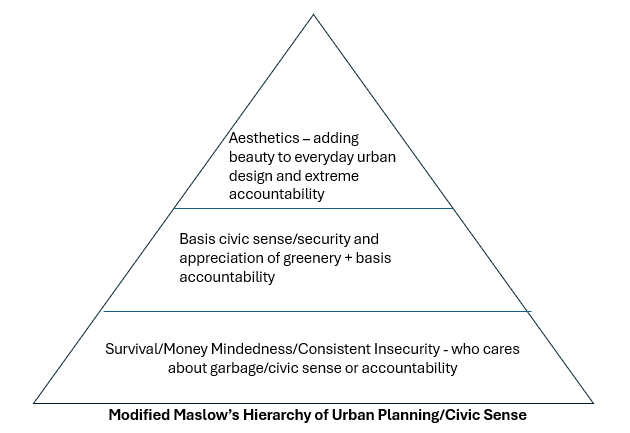
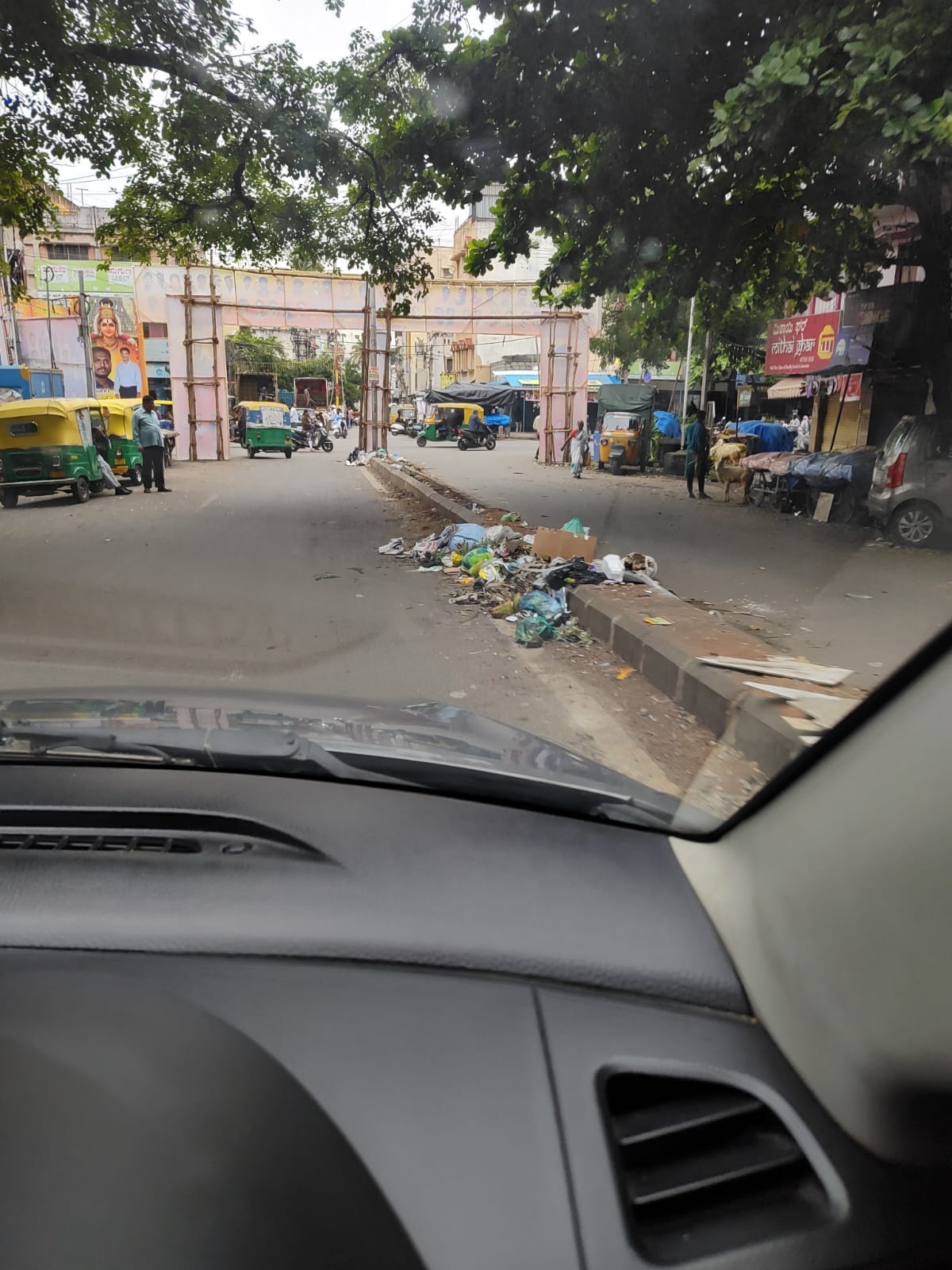
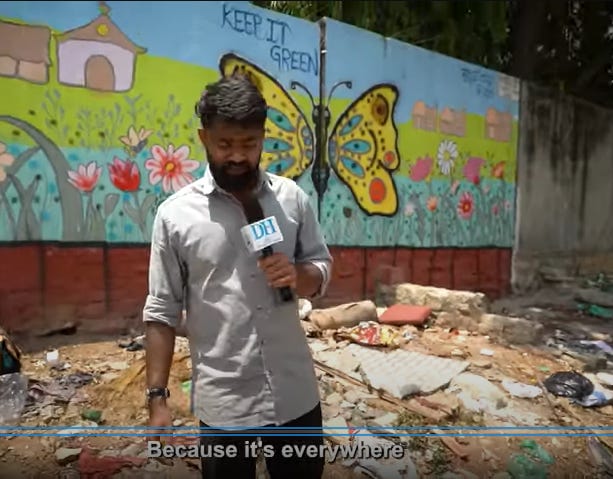
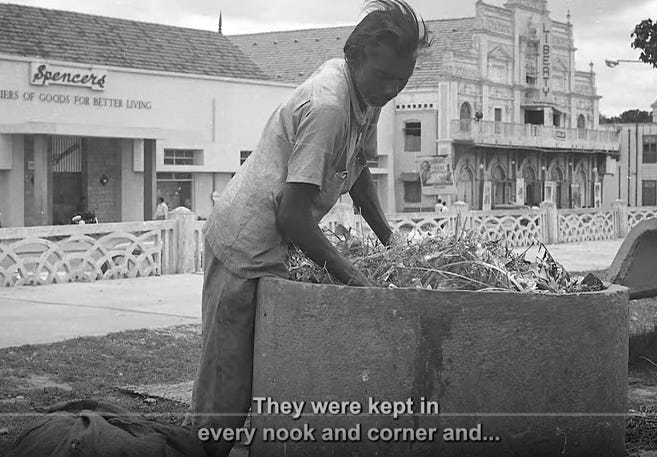
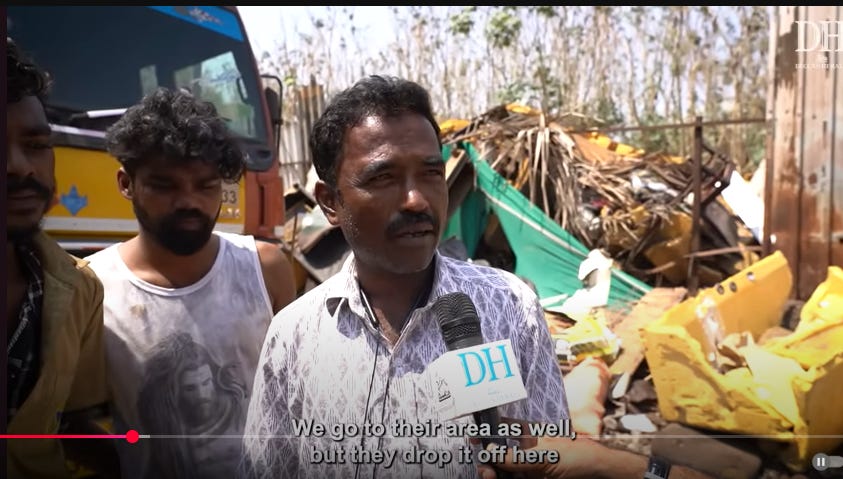
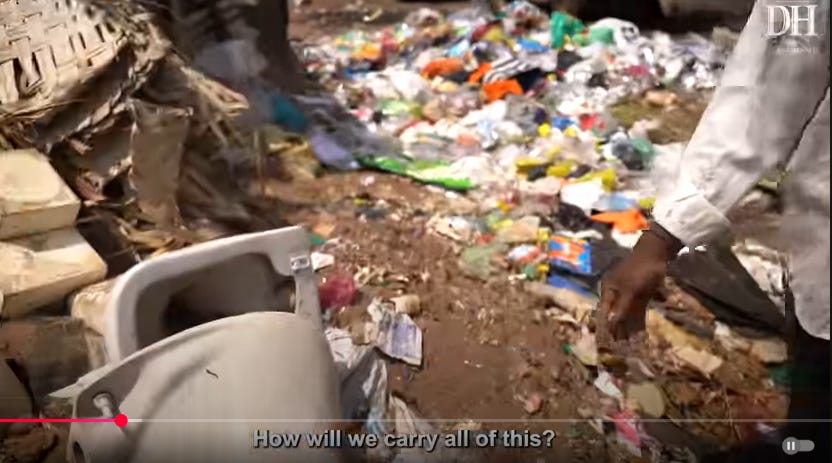
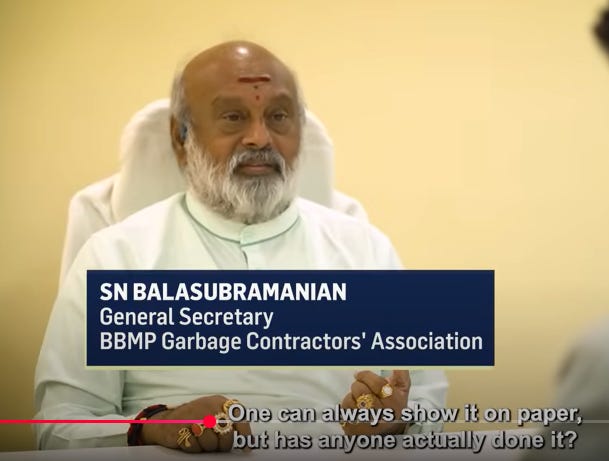
As someone with family in city design and civic issue activism, you can blame everyone all you want, but they are not entirely to blame. The problem is with the structure of city administration itself. In American cities, city administration has power over all the different agencies which come under them. So city managers or city council gets to have power over these organizations, and these positions are elected at the city level, or appointed by those elected at city level. In Colombo though, all the agencies in charge of power, water, transit are federal agencies and MPs have power over them.
In bangalore, the person with power over bwssb, bmtc, electricity, roads is the BBMP commissioner. And he is appointed by the CM. Mayor has no power other than cutting ribbons. Corporators can't do much other than call their contacts at different agencies to get civic problems fixed. They can't come up with projects proactively.
People aren't even aware how important the office of the BBMP commissioner is. But even if they were, there's no way to have that be an electoral issue. Bangalore urban has 28 seats in assembly, so that's not that much power anyway, and besides, assembly elections have a different level of issues to vote on.
The only fix is going to be to make the mayor appoint the bbmp commissioner and increase the term and powers of the mayor and corporators. Without this direct accountability, there's no fixing this.